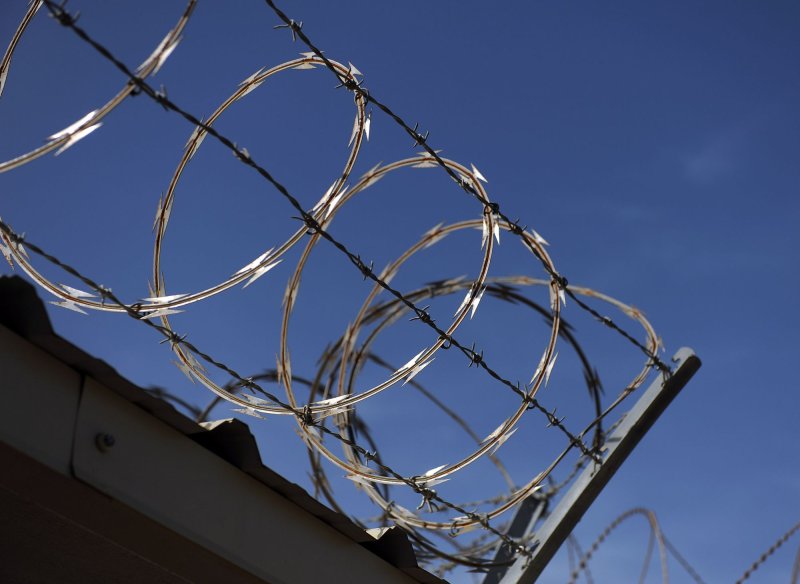1 of 3 | Razor wire is seen in Camp IV at Camp Delta where detainees are housed at Naval Station Guantanamo Bay in Cuba on July 8, 2010. UPI/Roger L. Wollenberg |
License Photo
GUANTANAMO BAY, Cuba, April 12 (UPI) -- Tens of thousands of emails between Guantanamo Bay, Cuba, detainees and their lawyers were wrongly turned over to the prosecution, it was revealed.
The revelation prompted Col. Karen Mayberry, the chief military defense counsel, to order all defense attorneys to stop using Pentagon computer networks to send privileged or confidential information until security can be assured, The Washington Post reported Thursday.
Army Col. James Pohl, the chief judge at Guantanamo, also ordered a two-month delay in pre-trial proceedings in the case against Abd al-Rahim al-Nashiri, accused of orchestrating the 2000 bombing of the USS Cole in Yemen.
Defense attorneys for Khalid Sheik Mohammed, the self-proclaimed mastermind of the Sept. 11, 2001, attacks on the United States, and four co-defendants filed an emergency motion seeking a similar delay.
Pre-trial hearings in both cases were to resume this month.
The Post said the prosecution gained access to about 540,000 emails from defense teams, although it was unclear which cases were involved. A Pentagon spokesman declined to comment.
Defense attorneys said prosecutors told them they stopped reading the emails as soon as they realized the missives contained confidential defense information, the Post said.
The mishandling of the emails was detected when IT specialists were searching the government's computer system on behalf of prosecutors in a specific case.
"Is there any security for defense attorney information?" asked James Connell, representing Sept. 11 defendant Ali Abdul Aziz Ali. "This new disclosure is simply the latest in a series of revelations of courtroom monitoring, hidden surveillance devices and legal-bin searches."
In February, a military lawyer acknowledged microphones were hidden in rooms used by defendants when they met with their attorneys. The military said the system was not used to eavesdrop and had been installed before defense lawyers used the rooms. The government said it removed the wiring.
That same month, Pohl learned the soundproofed courtroom at Guantanamo Bay was wired with a "kill switch" that allowed an unknown government entity to cut the trials audio feed to the public gallery.
Attorneys also complained recently that work files were lost when the Defense Department tried to upgrade its network for defense lawyers handling detainee cases in the Washington area, the Post said.
Meanwhile a hunger strike among Guantanamo Bay detainees has widened, but attorneys for the prisoners and the military disagree about the number of participants.
The Pentagon said Thursday 43 of the 166 detainees were on hunger strike, of whom 11 were being force-fed. Defense attorneys said the overwhelming majority of the more than 120 inmates in the base's Camps 5 and 6 were on the hunger strike.
International Committee of the Red Cross President Peter Maurer told the Post Thursday the hunger strike arose from detainees' frustration over being held indefinitely without any further review.















